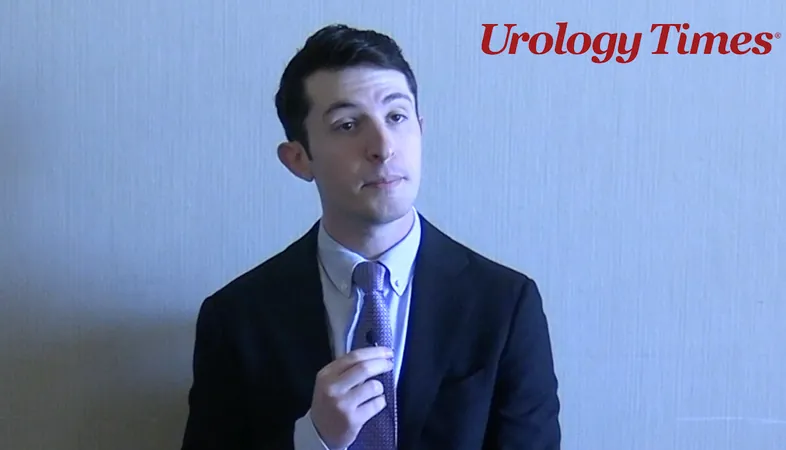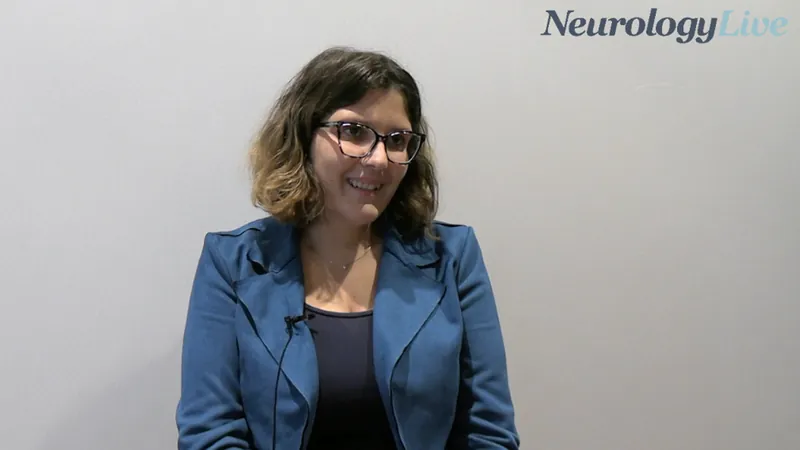
Breakthrough Research on Peyronie’s Disease Reveals Surprising Patient Insights at SMSNA 2024
2024-11-04
Author: Li
Introduction
In a groundbreaking presentation at the 2024 Sexual Medicine Society of North America (SMSNA) Fall Scientific Meeting held in Scottsdale, Arizona, Dr. Jake Miller, a senior urology resident at the University of California, Irvine, unveiled compelling findings from his research on Peyronie’s disease. The study, titled "Satisfaction After Collagenase Clostridium Histolyticum May Be Impacted by the Accuracy of Patient-Predicted Penile Curvature," addresses crucial aspects of patient satisfaction and treatment efficacy.
The Study Framework
Dr. Miller discusses the significance of a large multi-center database created independently by his team, marking it as the first comprehensive cohort series in the Peyronie’s disease research landscape that is not reliant on industry funding. The initial data collection came from four esteemed institutions: UC Irvine, the University of Chicago, the University of Miami, and Baylor University, with two additional sites, UC San Diego and Indiana University, being incorporated later.
Research Focus Areas
The study focused on four essential topics: the correlation between patient-reported and urologist-measured penile curvature, the effects of testosterone therapy, the outcomes related to complex curvature cases, and how these factors influence patient perceptions over time. According to Dr. Miller, one of the most intriguing findings emerged concerning patient-predicted curvature.
Surprising Findings on Patient Satisfaction
The research revealed that patients who underestimated the severity of their curvature during initial consultations tended to report higher satisfaction levels post-treatment. This phenomenon raises fascinating questions about patient psychology and expectations. While patients who overestimated their curvature did not show a statistically significant decline in treatment outcomes, Dr. Miller speculated that their heightened expectations could lead to disappointment, making even meaningful improvements feel insufficient.
Implications for Patient-Doctor Communication
Understanding this dynamic allows healthcare practitioners to engage in more honest and open conversations with patients regarding their expectations before treatment begins. This approach could facilitate better outcomes and satisfaction, emphasizing the importance of tailored discussions about likely improvements and potential alternative treatments if expectations are not likely to be met.
Conclusion and Future Directions
With ongoing research and collaboration across multiple centers, Dr. Miller's work highlights a pivotal shift in how Peyronie’s disease is understood and treated. By prioritizing patient experiences and perceptions, the medical community can enhance treatment methodologies, ultimately leading to improved outcomes for men affected by this condition.
Final Thoughts
As the understanding of Peyronie’s disease continues to evolve, Dr. Miller's presentation at SMSNA 2024 stands as a critical contribution to the field, offering hope and clarity for both patients and healthcare providers navigating this complex condition.


 Brasil (PT)
Brasil (PT)
 Canada (EN)
Canada (EN)
 Chile (ES)
Chile (ES)
 España (ES)
España (ES)
 France (FR)
France (FR)
 Hong Kong (EN)
Hong Kong (EN)
 Italia (IT)
Italia (IT)
 日本 (JA)
日本 (JA)
 Magyarország (HU)
Magyarország (HU)
 Norge (NO)
Norge (NO)
 Polska (PL)
Polska (PL)
 Schweiz (DE)
Schweiz (DE)
 Singapore (EN)
Singapore (EN)
 Sverige (SV)
Sverige (SV)
 Suomi (FI)
Suomi (FI)
 Türkiye (TR)
Türkiye (TR)